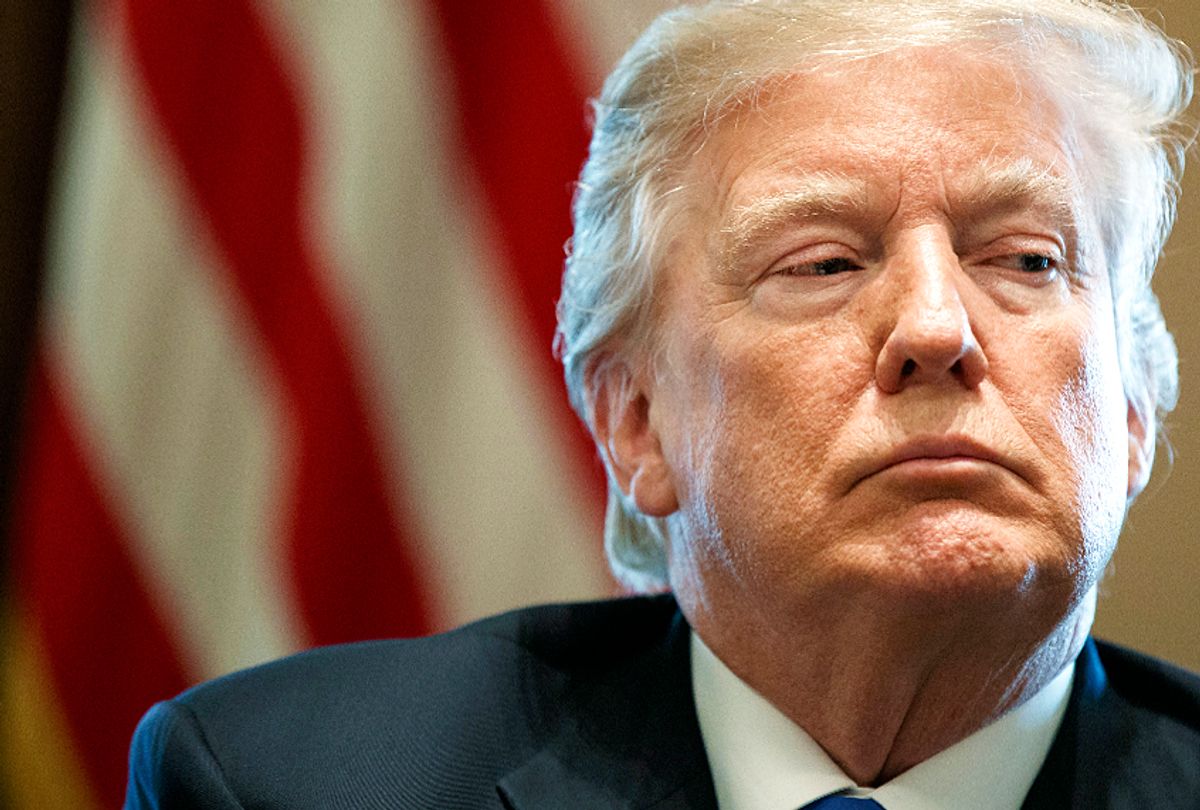After Donald Trump’s vulgar comments about immigrants from “shithole” countries in Africa and the global south were reported last week, the president was almost universally condemned by critics as a racist. Nearly three years after Trump announced his candidacy and began his xenophobic campaign, mainstream media outlets, which until now have been reluctant to use that term to describe the president, finally acknowledged what has long been obvious.
“The President of the United Stated is a racist,” declared CNN’s Don Lemon, as did other top pundits and reporters, while the New York Times published a “definitive list” documenting Trump's long history of racism going back to his early days in New York. Even a group of African ambassadors to the United Nations issued a statement demanding an apology from the president, calling his comments “outrageous, racist and xenophobic.”
It is no doubt a good thing that the mainstream media is finally starting to point out the obvious truth that President Trump is a racist, and it took them long enough. It is time to start calling the president what he truly is, and his racism has been clear to many since he launched his political career on the “Birther” conspiracy theory back in 2012. It has also been apparent for some time now that Trump is, among other things, a sexist, a misogynist, a xenophobe, a conspiracy theorist, a compulsive liar and a con man — and he should be called out for all of this and more.
Many of the president’s biggest critics, however, have been unsatisfied with just calling Trump what he is, and have gone further with more questionable and problematic charges that end up doing more to undermine the case against him. Over the past year, for example, some critics have become fixated on the Russia investigation, and have propagated the inflammatory claim that Trump is a “traitor” and a Russian spy. A kind of liberal jingoism that mirrors right-wing chauvinism
“Dems should make now the moment to stand up for the idea of America and reveal the president to be what he is: the Un-American,” opined David Rothkopf, the former editor of Foreign Policy magazine, while former New York federal prosecutor Preet Bharara proclaimed that he has a “patriot's faith that America is the best country,” and that Trump’s crude remarks were “wrong, naive, unhelpful, stupid, low-class, unamerican & racist.”
Sen. John McCain, a longtime leader of the neoconservative movement, had a similar patriotic response, tweeting: “Respect for the God-given dignity of every human being, no matter their race, ethnicity or other circumstances of their birth, is the essence of American patriotism. To believe otherwise is to oppose the very idea of America.”
At first glance, these denunciations of Trump’s racist comments sound reasonable enough. The president’s remarks were, after all, racist, bigoted, naive, stupid and low-class (and so is he). But to call Trump “un-American” is not only reminiscent of McCarthyist rhetoric, but a dubious claim in itself. Indeed, Trump’s racism is about as American as baseball and apple pie, and to claim otherwise is to whitewash America’s history.
In many ways, Donald Trump is the perfect representative of America — a country that was built on racism and white supremacy, where money and wealth are the ultimate symbols of success (rather than intellectual or creative accomplishments) and where celebrities are worshipped as modern-day deities.
Since the 1980s Trump has been a major part of American popular culture, and it’s not hard to see why. He is a “successful” businessman with a net worth in the billions, and a celebrity who had his very own reality TV show. There are few public figures from the past few decades who epitomize America’s consumer capitalist culture more than Donald Trump, and indeed our racist and xenophobic president is the archetypal “ugly American.”
Describing Trump as “un-American” whitewashes and romanticizes American history, and also sets a dangerous precedent. It is worth noting this term has historically been used by right-wingers and nationalists, and was most prevalent in the McCarthyist 1950s, when the the House Un-American Activities Committee was at its peak. Denouncing political opponents as un-American or anti-American, while
It should be clear to any reasonable person by now what kind of person Donald Trump is, and though he insists that he is the “least racist person” he knows, his actions and words tell another story. The president should be called out for his racism, his sexism, his dishonesty, his xenophobia and the rest of his repulsive views. But before liberal critics start calling Trump an un-American traitor, they should consider what kind of precedent it sets for the future -- and should also consider what America has really stood for throughout most of its history.

Shares